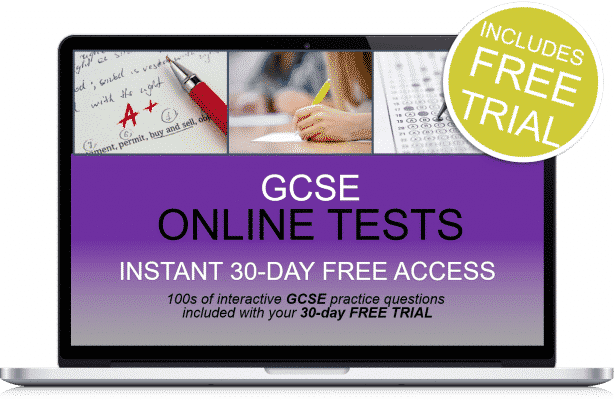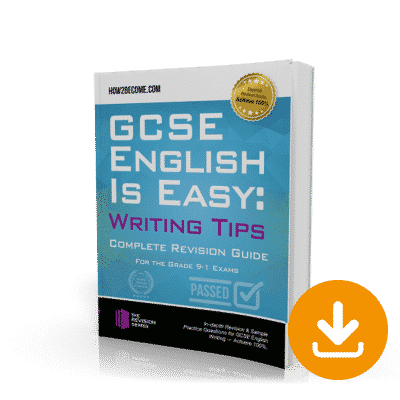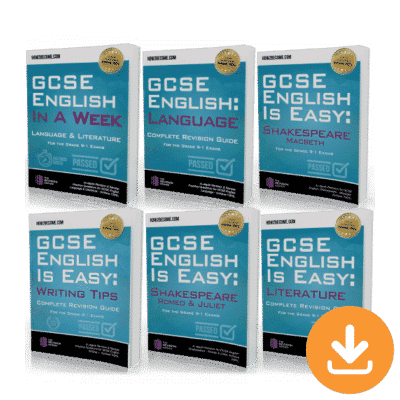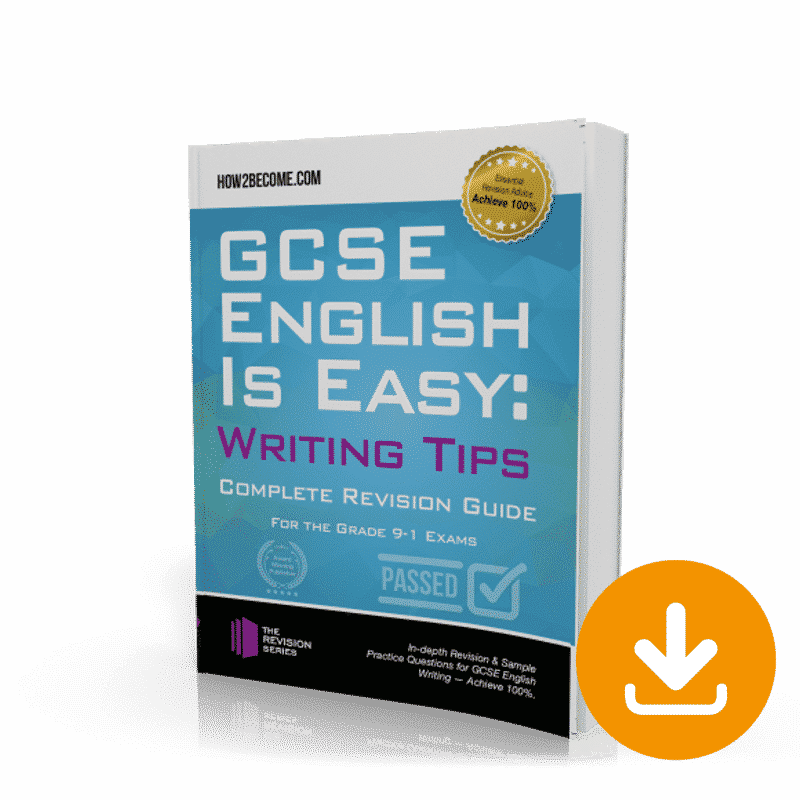GCSE ENGLISH WRITING TIPS
This guide contains advice spanning from the basics of writing, up to specific tips on how to go about the many different types of question that you will face during your GCSE English exams.
Whether you’re writing to inform, or talking about plays and poetry, this guide contains walkthroughs and examples.
Purchase this guide for an upgrade on the most important skill required for GCSE English exams: writing!
FREE BONUS
When you order you will receive the following free bonus:

Plus 30-days FREE ACCESS to the GCSE online testing suite. Thereafter, just £5.95 per month. No minimum term. You may cancel anytime. Cancel before the 30-days are up and you will not be charged. Online suite access on PC, MAC and mobile devices.

✓ 30-Day Money-back Guarantee

✓ 30-Day Money-back Guarantee
Did you know? All orders with How2Become are protected by our 30-day money-back guarantee. What ever the reason…or no reason at all…you can have your money back if this resource isn’t right for you (see our terms for full details).














